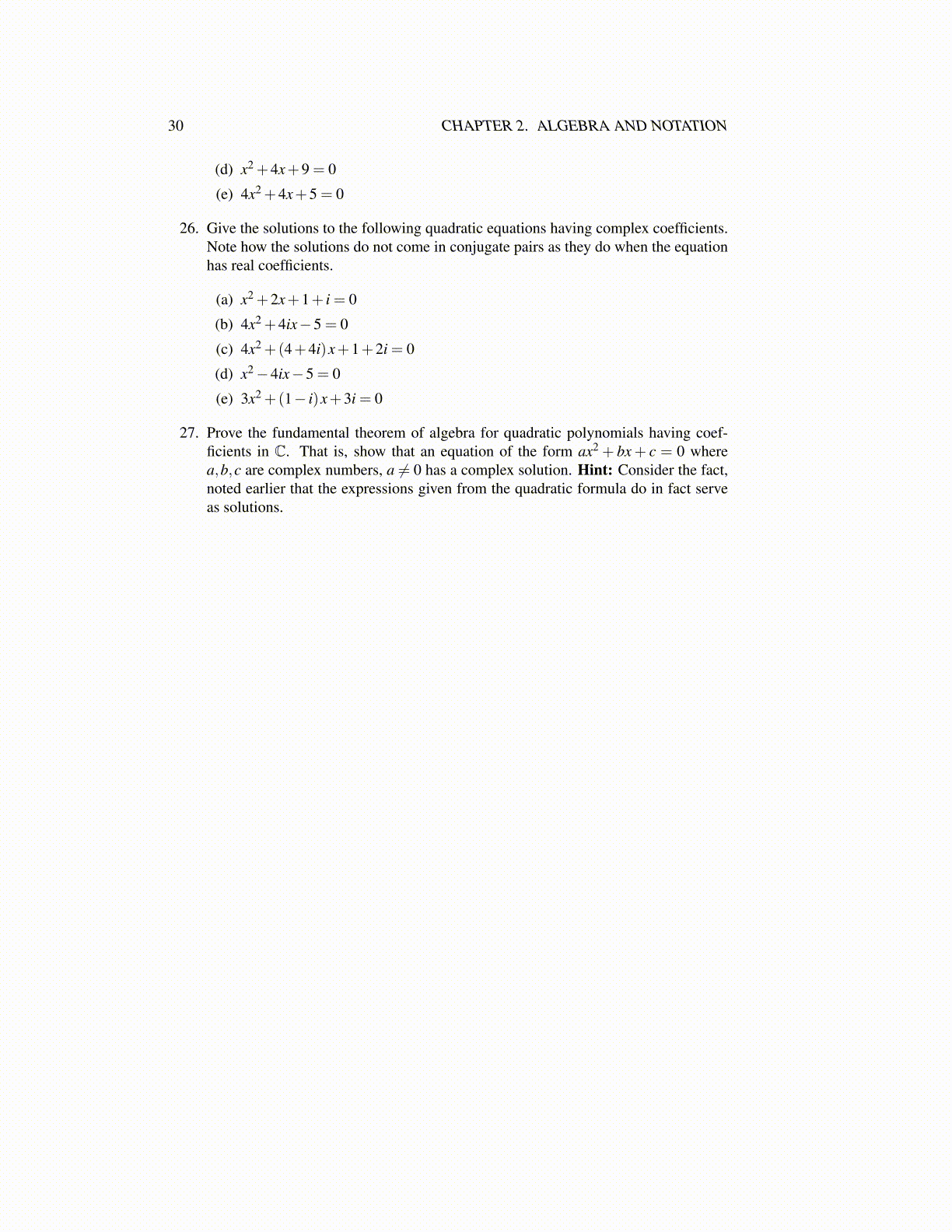
30 CHAPTER 2. ALGEBRA AND NOTATION
(d) x2 +4x+9 = 0
(e) 4x2 +4x+5 = 0
26. Give the solutions to the following quadratic equations having complex coefficients.Note how the solutions do not come in conjugate pairs as they do when the equationhas real coefficients.
(a) x2 +2x+1+ i = 0
(b) 4x2 +4ix−5 = 0
(c) 4x2 +(4+4i)x+1+2i = 0
(d) x2−4ix−5 = 0
(e) 3x2 +(1− i)x+3i = 0
27. Prove the fundamental theorem of algebra for quadratic polynomials having coef-ficients in C. That is, show that an equation of the form ax2 + bx+ c = 0 wherea,b,c are complex numbers, a ̸= 0 has a complex solution. Hint: Consider the fact,noted earlier that the expressions given from the quadratic formula do in fact serveas solutions.